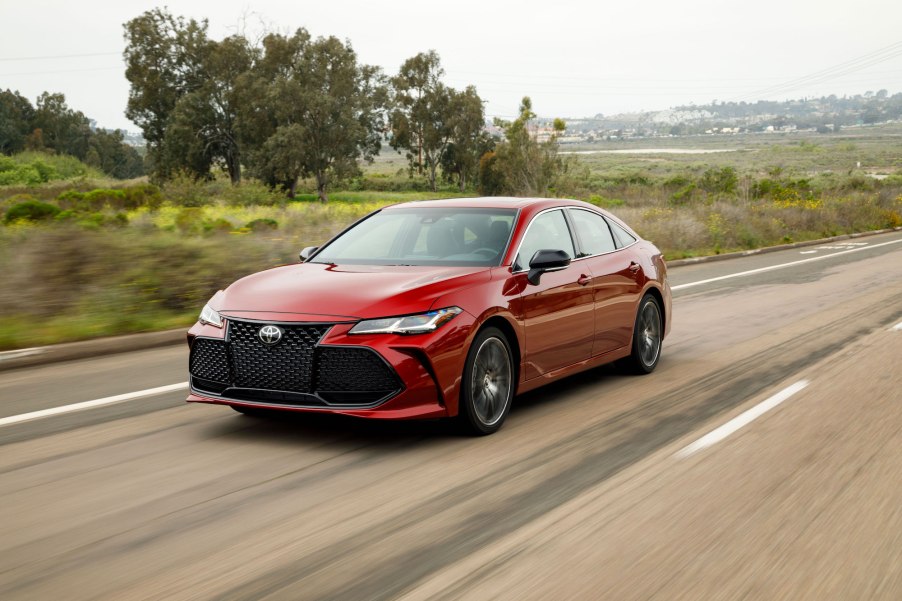
Why Doesn’t the Toyota Avalon Get More Respect?
When it comes to full-size sedans, the 2020 Toyota Avalon has it all. It’s spacious, boasts a load of luxury features, and handles smoothly. You also have a choice of a gas or hybrid powertrain. The reviews for the Avalon are good too. You’d think that with all it has going for it that the 2020 Toyota Avalon would have spectacular sales numbers. Think again.
Up for the challenge
With customers buying more SUVs and midsize sedans these days, the large-sedan segment has changed quite a bit. However, Toyota seems to be ignoring the trend. The automaker is still producing full-size sedans like the Avalon. In Toyota’s defense, it does it very well.
The 2020 Toyota Avalon, according to Edmunds, is only a smidge bigger than the Camry. But it offers a generous amount of legroom for passengers no matter where they’re sitting. The Avalon’s roomy cabin is done up in top-notch materials, making it ultra-comfortable for quiet, long road trips.
Toyota also adds performance to the mix. The gas-powered engine is a 3.5-liter V6 that gets 301 hp and 267 lb-ft of torque. It’s paired with an eight-speed automatic transmission that sends power to the front wheels. The Avalon’s steering and handling are nimble and fast, easily taking on winding country roads with the same ease as highways.
Models with the hybrid powertrain feature a 2.5-liter four-cylinder engine along with two electric motors. The setup puts out 215 hp and uses a continuously variable automatic transmission. There’s also a TRD model in 2020 Avalon that features a sport-tuned suspension.
There are just a couple of drawbacks. You can’t get Android Auto integration, and there isn’t a ton of headroom.
Edmunds considers the Avalon a good overall sedan, even more so than the Camry. Both U.S. News and Car and Driver speak favorably of it too.
A drop in sales
Recent sales data from GoodCarBadCar shows the Toyota Avalon has seen a drop of as much as 50 percent in sales in the past five years. But the car earns good reviews from industry experts and consumers alike.
At the end of November, the data shows Toyota sold 16,508 units in 2020. That’s only about a third of the 48,079 Avalons sold in 2016.
In September and October, sales slightly rose to exceed the sales figures from the same period in 2019. The increase was minuscule.
Why did Avalon’s sales drop?
Is the drop in the Toyota Avalon’s sales due to the shift to SUVs? Or is it Avalon’s fault?
It would seem with the positive critical acclaim and reviews from industry experts that Toyota has done everything it could to create a full-size sedan that offers most everything consumers want in a car. As mentioned before, it doesn’t have an abundance of headroom. That’s not enough to doom a vehicle, though.
Sure, it’s not an SUV or a truck. But could that shift be enough to tank the Avalon’s sales?
Maybe. But there are other possible considerations.
Baby-boomers are either about to retire or already retired. Historically, their generation tended to buy larger cars and trade for newer ones frequently as a status symbol. The generation that came after them also seemed to enjoy cars of all sizes but held onto them for years for practicality or financial reasons.
The latest generation of drivers, aged 16 to 24, isn’t buying many cars. Those who do purchase vehicles start with good used ones. There’s also the rise of transportation services like Lyft and Uber. Younger people can request a ride on their smartphone at a reasonable price.
Regardless of the cause for its flagging sales over the past five years, the Toyota Avalon is still a good full-sized sedan for someone looking for an all-around great car.


